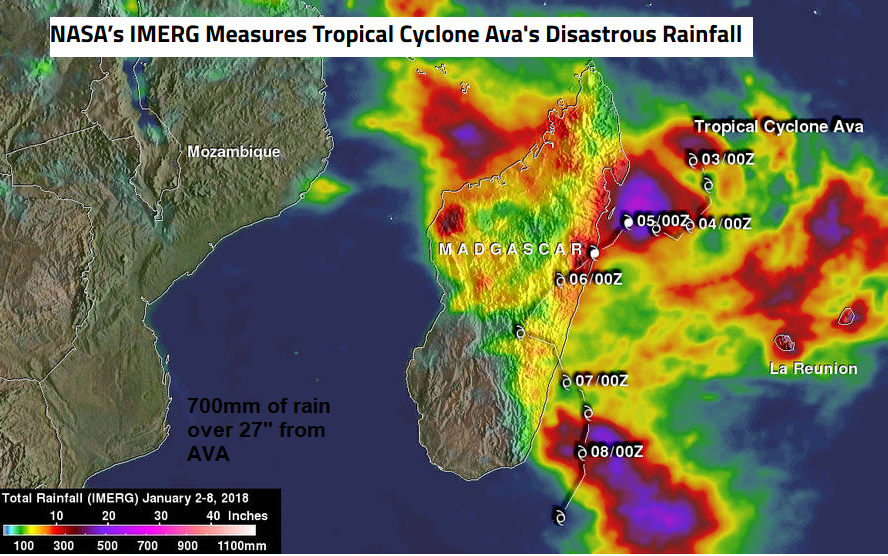
Once again vanilla prices have risen. Tropical cyclones continue to hit plantations on Madagascar affecting the vanilla markets .
Vanilla prices have risen so much that some ice cream producers are rethinking their offerings of Britain’s favourite flavour. It is all being blamed on the weather, but this is a lucrative business. Some mainstream tubs of ‘vanilla’ ice-cream may have never encountered an actual vanilla bean pod, but if you are making it properly, then the seeds scraped from the beans with their mysterious taste; this is the magical ingredient. It is the most expensive ingredient in ice cream production and the world's second most expensive spice by weight. One Madagascan vanilla pod is £2.50 in Tesco, two for £6.99 in Waitrose.
Madagascar is the place for top quality vanilla plantations, sort after for its depth of flavour but is also an island hit by a lot of cyclones. Like the Atlantic and Pacific, the warm waters of the Indian ocean produce huge rotating storms, whether they are called hurricanes, typhoons or just cyclones. Already in 2018, there have been five cyclones making landfall on Madagascar, coming in from the southern Indian Ocean. Last year Enawo at category 4 storm hit in March killing about 50 people and displacing over 100,000. This caused severe damage from the winds and flooding and was the strongest cyclone to hit in 13 years

Most vanilla is sourced from smallholder farmers living in northern Madagascar in the "SAVA" region: Sambava, Antalaha, Vohemar, Andapa. Most cyclones come in from the NE and here lies the problem.

The flowering season in Madagascar finishes at the end of January, this is an important time and doesn’t need violent winds or torrential rains.
“About 90 percent of the vanilla flavouring used by the world’s confectionery, cake, ice-cream and soft-drink makers is synthetic, mainly derived from petroleum and costing a fraction of vanilla extracted from the beans.”
There is natural vanilla extract which is governed by its amount of actual vanilla. In the EU, "vanillin" content is regulated. "Vanillin" must be at 1.6-2.0% to be considered a "Vanilla Extract", however during times of crisis, the standard is lowered to 1.0-1.2% vanillin. Brisan Group
Cyclones will create the initial disruption/crisis, but people crop collecting and hoarding add to this. Vanillin is a naturally occurring part of vanilla beans but can be found in other plants. You won’t get anywhere near as much as in vanilla pods, but it can be sourced elsewhere to qualify for the ‘natural vanilla flavour' label.
The whole production is precarious never mind cyclones. Certain climate and land along with the right kind of bees to pollinate the orchids are needed. India, Indonesia, Comoro Islands, Uganda, Hawaii, Martinique, Guadeloupe, New Caledonia, and Tahiti are growing sites. There are small plantations in America and new production is now being tried in Papua New Guinea. Currently worth more in weight than silver, this is a money maker. Artificial pollination takes place but there is only a short window for this and around eight months later the pods have to be picked as soon as they are ready. After that blanching, sweating and drying is needed, it is a long process.
If a cyclone was forecast to hit the plantations, you would assume the farmers would do all they could to protect their crop. Even after the storm has passed, the beans can be gathered up, but this can lead to poor quality crops, if they weren’t quite ripe, are wet or dirty.
The high-value crop needs protecting from criminals, if prices are high farmers may harvest early which affects the quality and intensity. Crop collectors buy up and store beans by Vacuum packing them, sometimes before they are fully dried. This will all affect the market and it seems for decades now there have been media stories about vanilla price hikes or shortages. Research continues into other backup options. With climate change, tropical cyclones will increase in both frequency and intensity (WMO). With our seaside tradition of vanilla ice cream, it looks like we will have to pay more or just settle for the artificial vanilla flavour with the true vanilla taste fading to a rarity.
World Cities forecast Antananarivo